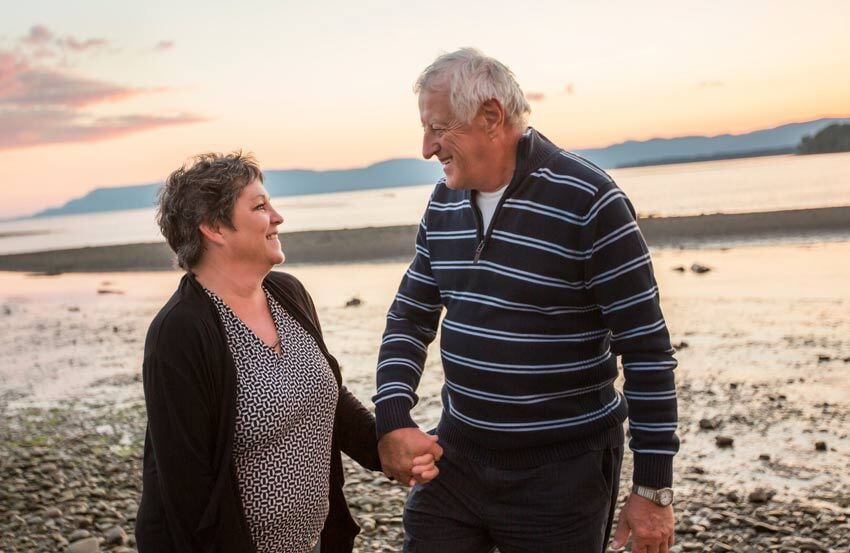Planning a trip with cancer can seem overwhelming, but finding the right travel insurance shouldn't be. We're here to talk you through it.
In this guide, we'll breakdown coverage options, what information insurers may need and share tips on how to make your travels stress-free. Our goal is to make everything clear and simple, so you can travel with peace of mind. Ready? Let's get started!

Can I get travel insurance with cancer?
Yes! You can get travel insurance if you have cancer.
But, some insurers might not cover more serious conditions. If that's the case, there's no need to worry. The Money and Pensions Service (MaPS) has a directory of insurers that specialise in covering those with serious medical conditions, including cancer.
For extra guidance, you can also give MaPS a call for free, impartial advice on: 0800 138 7777.
Do I need holiday insurance for cancer patients?
Though travel insurance isn't a legal requirement, it's definitely worth considering if you have cancer.
Just imagine being on holiday and suddenly needing medical care - your travel insurance could cover those unexpected costs. It can also protect you if you need to cancel your trip or cut it short because of health issues.
With the right policy, you can relax knowing that you're covered against any surprises. What a relief.
What information do I need to share with my insurer?
What you'll need to share can vary depending on your insurer.
Generally, you'll need to provide the following information:
-
Type and grade of cancer. Let insurers know the type of cancer you have and its stage. This is just so they can understand your situation better.
-
Treatment you've had or are planning. Some insurers might want to know about any treatment you've had or are scheduled for. This is so they'll have a clear picture of your health journey.
-
What medicines or drugs you're taking. There's a chance you might need to list any medications you're on. This is so insurers can understand your ongoing needs.
-
Hospital admissions and planned care. It's common for insurers to ask you to share any recent hospital stays and future care plans.
-
Doctor's letter. Sometimes, you might need to provide a letter from your doctor explaining your diagnosis and treatment plan.
All of this might feel like a lot of information to provide. But, remember, it's just so insurers can make sure they give you the cover you need.
What is the best type of travel insurance for cancer patients?
The best cancer travel insurance depends on personal circumstances.
Generally, you'll want to make sure you get a policy that covers your medical needs. That way, if you need emergency treatment while abroad, you'll be covered against expensive medical bills. You'll also want to look for a policy that'll cover needing to cancel or cut a holiday short for health reasons.
Plus, you should also make sure your insurance includes repatriation to the UK. This means that if you fall ill and need to come home, you'll be covered. Without a policy in place, the cost of returning home for medical treatment can be very expensive.
Also, if you're travelling in the EU and still have a valid UK EHIC, bring it with you. Otherwise, take your UK GHIC. Used with travel insurance, these cards can help you access state-provided emergency healthcare if you need it, giving you extra reassurance you have the cover you need.
The UK GHIC also covers emergency state healthcare in some countries outside the EU. Carrying your UK GHIC, together with travel insurance, helps you travel with confidence knowing support is available if you need it.
Do I need to declare cancer for travel insurance purposes?
Yes, you'll need to declare your cancer when getting travel insurance.
Cancer is considered a pre-existing medical condition, so insurers need this information to make sure you have the right coverage. By being open about your cancer, you'll make sure that if you ever need to make a claim, you'll be fully protected. If you don't do this, any claims related to your cancer might not be covered.
Remember, it's just the same as declaring any other pre-existing condition.
Do I need to tell my insurer if my cancer is in remission?
Yes, you'll need to let your insurer know about your cancer, even if it's in remission.
After overcoming cancer, it's completely natural to want to celebrate with a well-deserved holiday. But, insurers still need to know about it- just to make sure they offer you the right level of cover.
So, make sure you declare to your insurer you're in remission before heading off on your travels - you've earned an adventure!
Types of holiday insurance for cancer patients
There's a few different policy types available to choose from. Each option provides cover for your medical needs. So, you can focus on enjoying your travels - whatever you plan to do!
Let's break them down to help you find the best fit for you:
- Single-trip: This is ideal if you have just one trip planned. It'll cover urgent medical treatment you need while you're abroad, which is especially important when managing cancer.
- Annual travel insurance: If you're planning multiple trips over the next year, an annual multi-trip policy might be more cost-effective. It provides continuous cover for individual trips over 12 months, including emergency medical treatment you need.
- Backpackers or long-stay: If you'll be away for more than 90 days, a backpacker or long-stay policy is a good option. This type of insurance offers extended cover up to 18 months. So, you can have the reassurance you're covered for the entirety of your travels should you need medical help.
Tips for travelling with cancer
Sure, travelling with cancer might need a bit more preparation. But, these tips can help make your journey easier and more enjoyable:
Speak to your doctor before travelling
Have a chat with your doctor before you head out on your trip. They can make sure you're all set for your trip, including if you have all the medication you'll need.
Get travel insurance that covers medical emergencies
Travel insurance usually covers emergency medical treatment. But, it's worth reading policy details before you buy just to be sure.
Check local health facilities before you travel, just in case you need to use them
It's good to know where to go if you need any help. So, look up nearby healthcare options at your destination in case you need to go to one. This could be helpful in the event you need urgent medical assistance.
Take plenty of medication
Make sure you have enough medication for your trip, including painkillers. You're usually allowed to take your prescribed amount and some extra, just in case you need it.
Top tip: Keep enough medication to last you for your trip in your carry-on. That way, if your luggage goes missing you'll still have enough. Phew.
Carry a copy of your health records
It's a good idea to bring along a copy of your health records. They'll be handy to provide if you need to see a local doctor.
Monitor your health while you're away
Keep an eye on how you're feeling. If something feels off, make sure to seek medical help.
Head's up: If you need emergency treatment, some hospitals might ask to see proof of payment. If this happens, you should contact your travel insurance provider immediately. Or, ask a loved one to contact them on your behalf if you're unable to.
Factor in time to rest and recharge
What's a holiday without a little rest and recovery? Make sure you set aside time to kick back and relax. A little downtime goes a long way in making you feel well and healthy.

